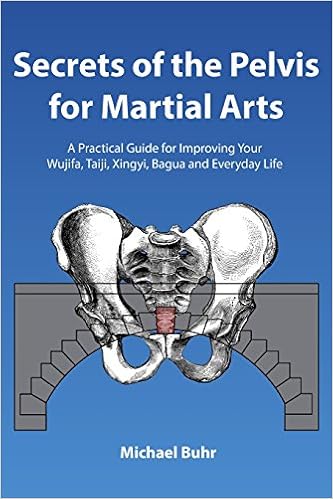* Question: Why do the adjustments (to my zhan zhuang stance) that I receive week after week in class feel the same to me? Is nothing changing?
Answer: You're only able to notice at the level you can notice. Notice deeper then you'll notice the adjustments are not the same.
(What I was noticing was the external form of the adjustments. Because I couldn't notice nor track the more subtle kinesthetic changes occurring in my own body week to week, all I noticed was the external method. In fact, the adjustments worked with my body as it was at that time and so each adjustment was never truly the same.
I have learned that I can continue to receive the "same" adjustment over years of practice and as a result, develop a recognizable level of internal skill. The "same" adjustment continues to guide me to deeper and deeper levels of noticing and refinement.
Practice the ordinary until it becomes extra-ordinary. Practice the ordinary some more until it becomes extraordinary. What appears extraordinary to others is ordinary to me.
For example, in a recent Wujifa class, I received an adjustment and was told, "Ah, there's connection. How's that feel?" Well, I've had this kind of experience before and to me, the Holy Grail of internal strength, the feeling of whole body connectedness, feels like, well, nothing special. Quite ordinary.
Even though my body can now produce a recognizable level of connectedness, and I can somehow unconsciously do this, I'm currently having a difficult time conceptually identifying this "special" feeling in myself.
As I reflect on what I'm writing here, I see I'm still working through thinking that the feeling of connectedness should feel like "A" and I'm looking for "A" when I train but the feeling is really "B" and because "B" doesn't feel "special" to me, I mis-train. So here is another level of meaning of "Practice the ordinary." Noticing another level of ego getting in the way.)
* Question: How can I feel up and down my back in silk reeling?
Answer: Demonstration. Drop into legs and stretch the spine.
* Question: Is there a switch-over point in getting "the feeling"? Like, one day I don't have "the feeling" and then the next day, I have "the feeling"?
Answer: No. Developing the feeling is a smooth transition.
* (The following is a short conversation that occurred in a Wujifa class which carries a lot of information... depending on your level of noticing...)
Dan: (Demonstrating stance) I feel stuck here (pointing to a spot on his shoulder). How do I un-stick that?
Me: Wow! How did you come up with that kind of question? How can you feel so you recognize a feeling of stuck-ness? How does stuck feel?
Dan: I notice where I relax, then notice where I'm not relaxing.
Rick: A different perspective that Dan hadn't considered is feeling how the entire scapula moves and how the lack of noticing that contributed to the only thing he did notice.
(OK. So here is why this short conversation is so important to me:
- This represents typical Wujifa class conversations between the different levels of students - different in the levels at which they notice or don't notice their own internal kinesthetics.
- This conversation clearly shows where I was in my practice. Dan's question was internally, kinesthetically based whereas my questions were more external, method based questions.
- As time passed and my practice and questions shifted to be more kinesthetically based, I became more able to notice where other people were in their practice by the questions they asked. I've seen remarkable changes in Wujifa practitioners' bodies and in the corresponding types of questions they ask.
- This old lesson is contributing to my practice today: Where am I relaxed? Where am I not relaxed, stuck? What is the "bigger picture" that I'm not noticing that is contributing to the only thing I can notice?
- The more advanced the practitioner, the more that s/he can notice in the less practiced student.)
* If you're not honest with yourself, you'll never find the way out.
(This little sentence can easily be read "philosophically" and dismissed. However, reading it functionally, I think it becomes a companion to the saying, "You are where you are and that's where you start.")
Further reading:
Introductory article explaining this "Journal Notes" series: Zhan Zhuang Training Journal
Previous article in this series: Shifts Happen: Journal Notes #46
Next article in this series: No Shortcuts: Journal Notes #48


No comments:
Post a Comment